An unexpected voyage to St. Kilda
05/09/2019
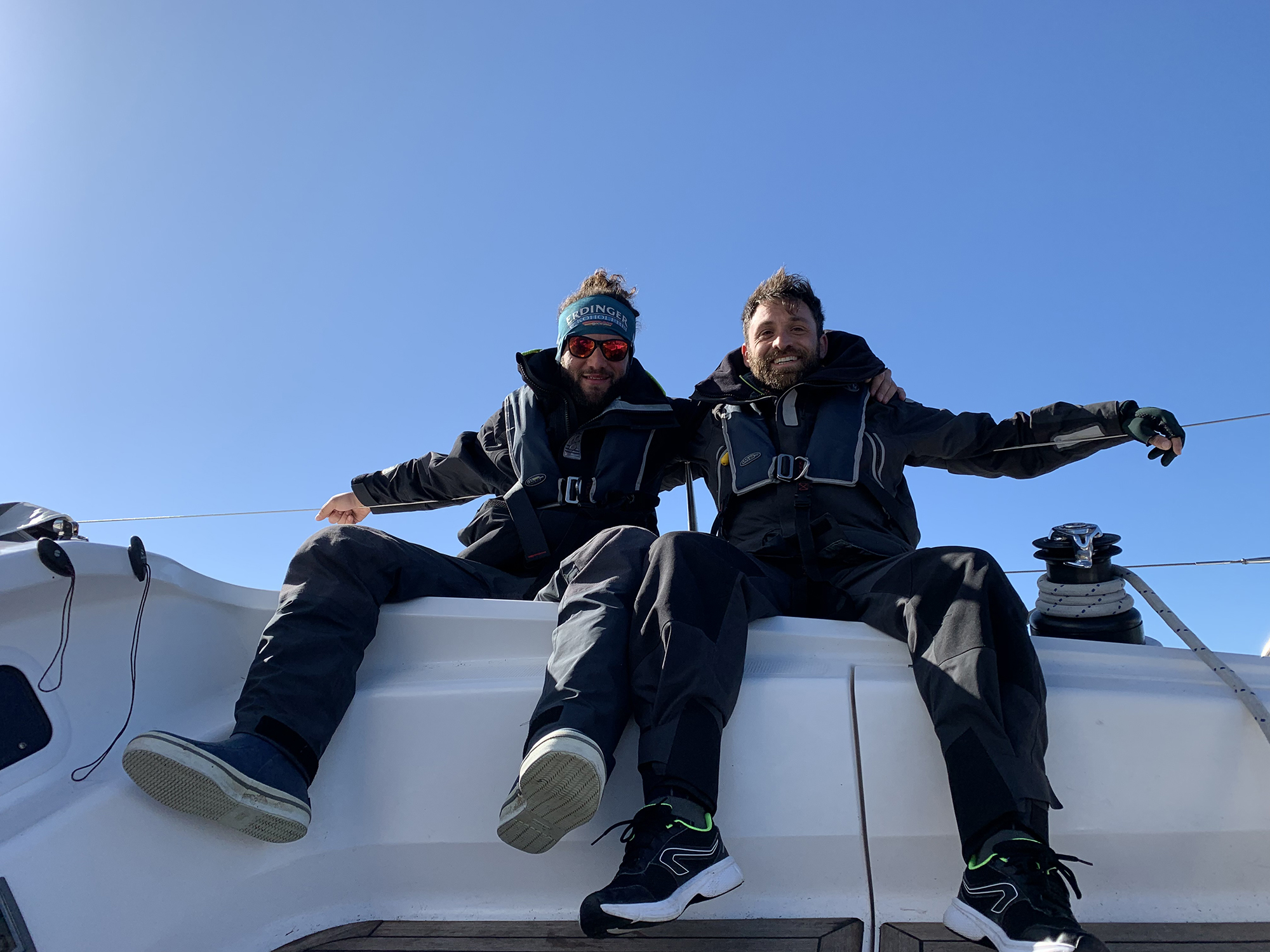
Stefano: Kennedy famously said that the Americans chose to go to the moon not because it was easy, but because it was hard. We chose to sail a 43 feet yacht, with a relatively inexperienced crew, to the remote archipelago of St. Kilda for exactly the same reason. It was only later that we discovered that only one in three planned trips to St. Kilda succeeds.
I first met my colleague Filo at Cranfield University and he’s originally from southern Italy, as I am. I told him I was planning a sailing trip around the Outer Hebrides, on the west coast of Scotland, and he signed up to the trip without asking many questions. I thought that it was either an act of high confidence in my sailing skills or as a sign of total recklessness – I still haven’t figured out which!
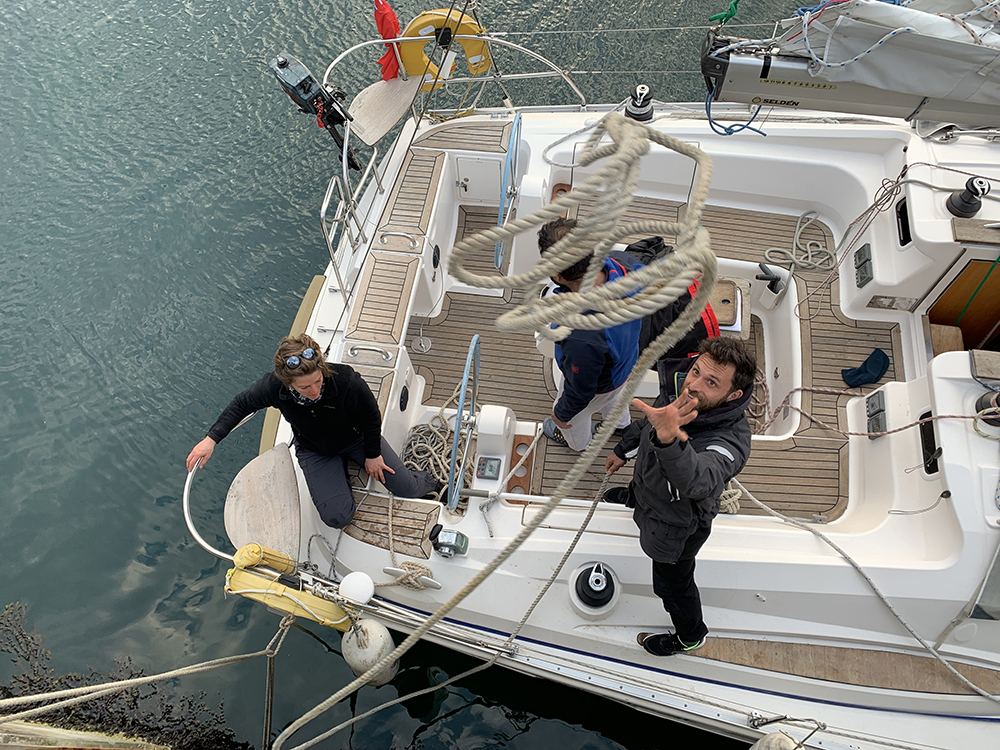
On the night we began our passage to St. Kilda, from the beautiful Monach Islands we reached after three days of sailing from the Isle of Skye, Filo was with me on-deck. I was at the helm trying to safely leave our anchorage from a bay with reported unchartered rocks awash and pitch-dark sky. Filo was at the front of the boat, shining a light into the water and ready to shout at me if he saw any obstructions. I later learnt that his £5 head torch did not really go beyond a couple of meters in front of the boat, so any rock or obstruction would have been too late to avoid. But Filo had confidence in me, stuck to his duty, and only the day after told me that what we did was ‘a bit crazy’. This aside, the rest of the sail to these stunning and remote islands was a treat, with perfect winds and entertaining company.
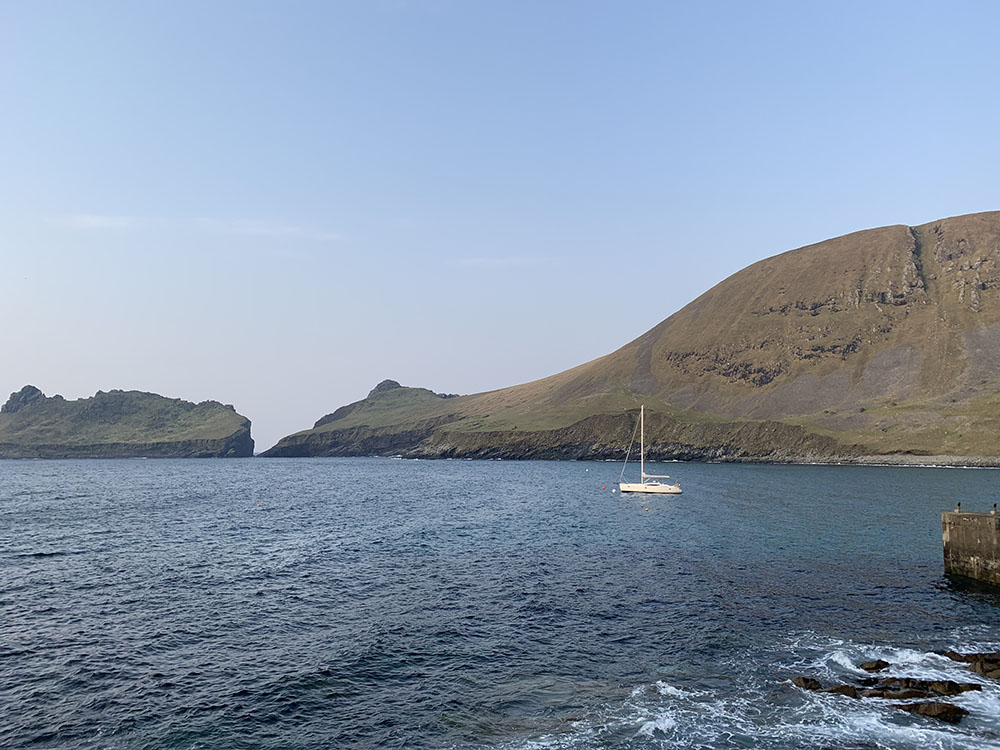
Filo: I usually go back to my hometown in Italy for my Easter holidays, but this year I was in need of something different and Stefano’s plan was quite timely. My previous experiences at sea were on small yachts to and from Greece, motoring for a couple of hours, enjoying sunbathing and fishing – until a couple of days before the trip I was under the impression this would have been what I was setting off to! I quickly realised I was going to need all my old winter clothing from my triathlon days to keep me warm.
I’ll be honest, I didn’t even know what St. Kilda was, but sailing for a whole night was something else. We took a quick nap between ten and midnight, at which time Stefano was ready to go. When we finally reached clear waters, we were able to relax and enjoy the spectacle of the untarnished sky, away from everything and everyone. At 6.30am, the silhouette of St Kilda made the lack of sleep a distant memory.
Memorable moments
Stefano: It’s hard to pick one, but the first that springs to my mind is Filo coming back to the yacht with a 10kg bag full of fresh, live scallops. We were mooring in a very isolated fishing harbour one night when we saw a fishing vessel arriving. Filo got out of the yacht and approached them as soon as they threw their lines. He asked them what fish they caught that day and if he could buy some. The fishermen must have sensed Filo’s desperation for fresh fish and gave him a whole bag of scallops, free of charge. I let you imagine our happiness around the scallop feast, which was accompanied by some fine whiskey. And the whiskey came straight from the Talisker distillery that we reached, by sailing, the day after resting at the fishing harbour.
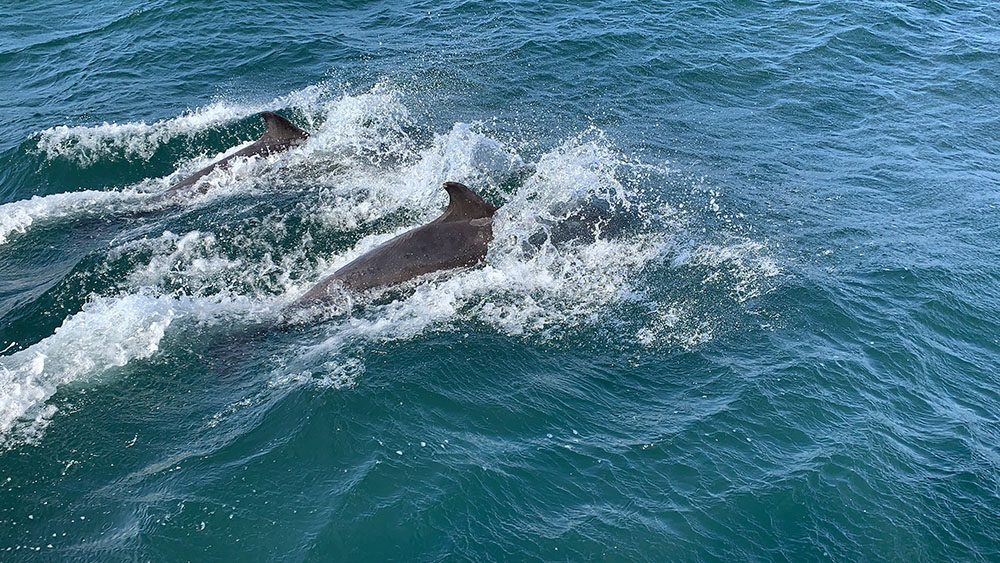
Filo: There were memorable moments on a daily basis, but for me the best one was the outdoor spectacle, which unfolded before our eyes, while having dinner on our boat in front of Talisker’s distillery. We sailed all day, with a good few hours spent making our way up the lock, surrounded by hills and wild vegetation, in gorgeous sunshine. We anchored just in time to pay a quick visit to the distillery’s shop and procure some fuel for the evening. We cooked our scallops, which we had with a sip of whiskey, and a phenomenal – if I say so – langoustine pasta. In the meantime, the sunset had come, the landscape changed completely, the colours were overwhelmingly beautiful, and for a few seconds I felt real peace and happiness.
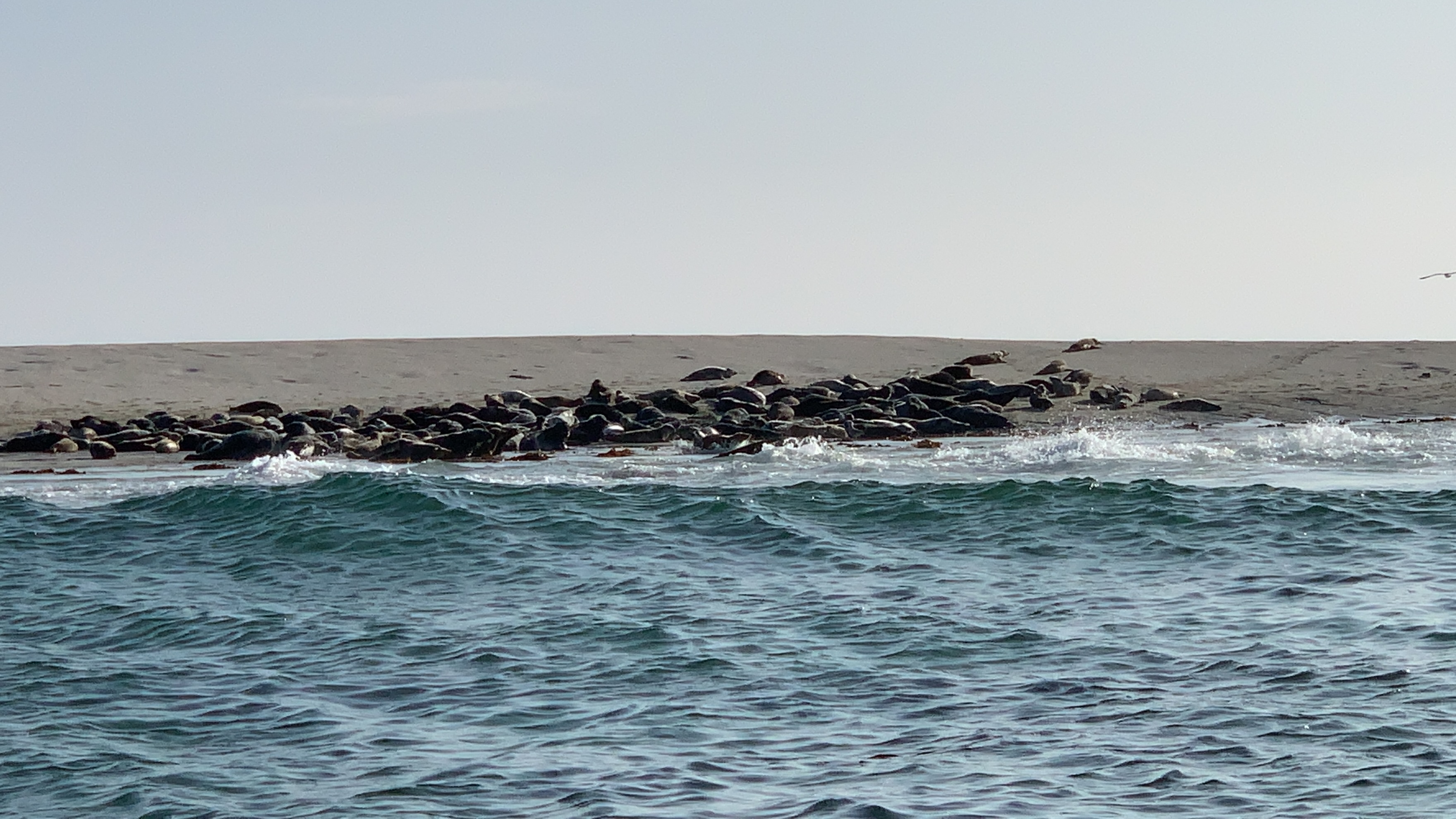
Lessons learned
Stefano: Sailing is about endurance and perseverance in chasing a goal. The same is required in the delivery of research projects and teaching and running MSc programmes. I’m not surprised Filo and I both share a passion for what we do at Cranfield and for how we want to spend our time off. The brain never stops and during the long hours of sailing, when the wind was constant and the sails set, we had plenty of opportunities to discuss our work. Filo told me about the research they do in titanium additive manufacturing and the challenges they have in controlling the deposition of the metal. I was so pleased to discover that, although my industry is automotive, my core expertise in control engineering was the very thing Filo needed to make beautiful titanium airplanes parts better. We have now started official talks on how to collaborate. I could have never predicted starting a new collaborative project in the middle of the Atlantic Ocean bouncing up and down on three metres ocean swells.
Filo: I like planning, and sailing is all about making sure everything is well-thought ahead; even when things go wrong there’s a methodical way to deal with it. The tremendous success of the trip despite the demonstrable lack of experience is the best testament to this. I loved learning about piloting and navigation, in a collaborative spirit which struck me for how quickly it developed; and I enjoyed sharing a common goal, on a rather confined space, with ‘colleagues’ that are also ‘friends’. This sounds a lot like a research team, working around the clock towards a deadline, or merely out of passion, and I’d like to think I will be able to apply this structure and culture in my own work environment. It was also nice to switch for so long from my daily environment, without emails or phones, and to pick up work discussions with Stefano with a fresh set of eyes. Hopefully we will have the chance to share more time together, at sea or in the lab.
Categories & Tags:
Leave a comment on this post:
You might also like…
Keren Tuv: My Cranfield experience studying Renewable Energy
Hello, my name is Keren, I am from London, UK, and I am studying Renewable Energy MSc. My journey to discovering Cranfield University began when I first decided to return to academia to pursue ...
3D Metal Manufacturing in space: A look into the future
David Rico Sierra, Research Fellow in Additive Manufacturing, was recently involved in an exciting project to manufacture parts using 3D printers in space. Here he reflects on his time working with Airbus in Toulouse… ...
A Legacy of Courage: From India to Britain, Three Generations Find Their Home
My story begins with my grandfather, who plucked up the courage to travel aboard at the age of 22 and start a new life in the UK. I don’t think he would have thought that ...
Cranfield to JLR: mastering mechatronics for a dream career
My name is Jerin Tom, and in 2023 I graduated from Cranfield with an MSc in Automotive Mechatronics. Originally from India, I've always been fascinated by the world of automobiles. Why Cranfield and the ...
Bringing the vision of advanced air mobility closer to reality
Experts at Cranfield University led by Professor Antonios Tsourdos, Head of the Autonomous and Cyber-Physical Systems Centre, are part of the Air Mobility Ecosystem Consortium (AMEC), which aims to demonstrate the commercial and operational ...
Using grey literature in your research: A short guide
As you research and write your thesis, you might come across, or be looking for, ‘grey literature’. This is quite simply material that is either unpublished, or published but not in a commercial form. Types ...






